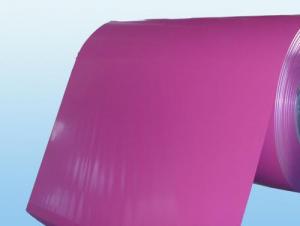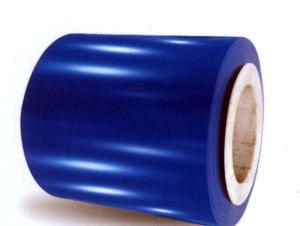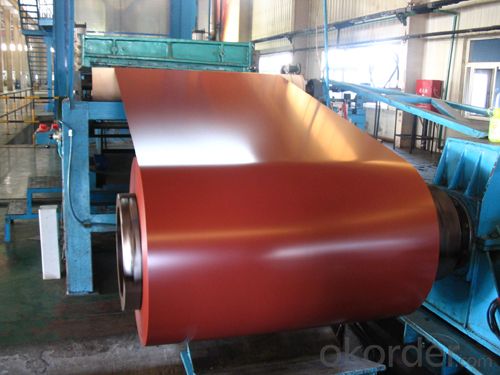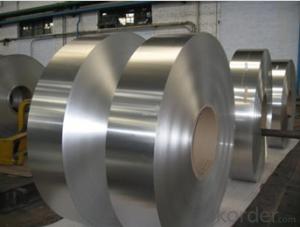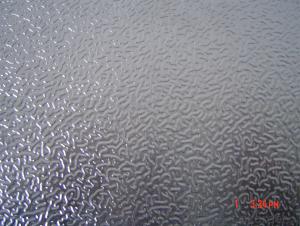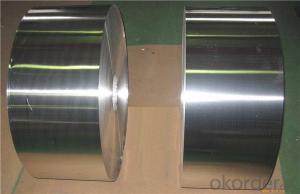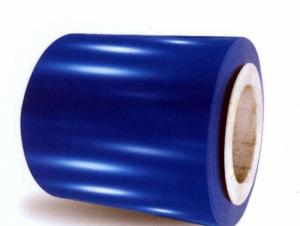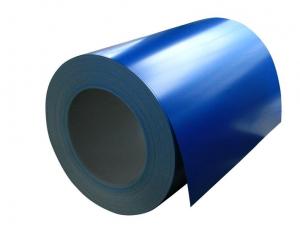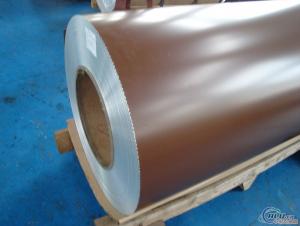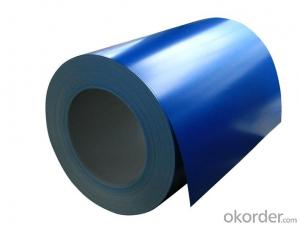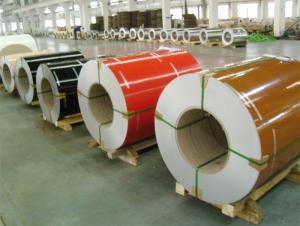Air Conditioner Aluminum Coil - Color Coated Aluminium Coil PE Painting AA3003 H14
- Loading Port:
- China Main Port
- Payment Terms:
- TT or LC
- Min Order Qty:
- -
- Supply Capability:
- -
OKorder Service Pledge
OKorder Financial Service
You Might Also Like
1.Structure of Product Description
Color Coated Aluminium Coil is widly used in decoration field. We can supply two kinds of paiting: PE and PVDF. For painting brand, we have China brand, PPGI and Becker.It depends our customers' requirement. PVDF coated aluminium coils are mainly used in the open air. It can last about 15-20 years. PE coated aluminium coils are used in the rooms, it can last 10 years.Now our Color coated aluminium coils are mainly exported to Asia, South America, Europe and so on.
2. Main features of the product
a.Exact Color--We have special color team to adjust the colors for our customers. You can provide our color sample or we can do color sample according to RAL Color System.
b.High quality-Our color coated aluminium coils are exported to Europe and pass European Standard Inspection.
c.Fast delivery time-The usual delivery time can be within 30 days.
3. Image
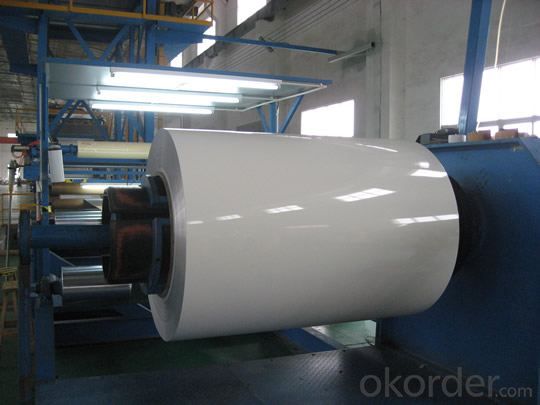
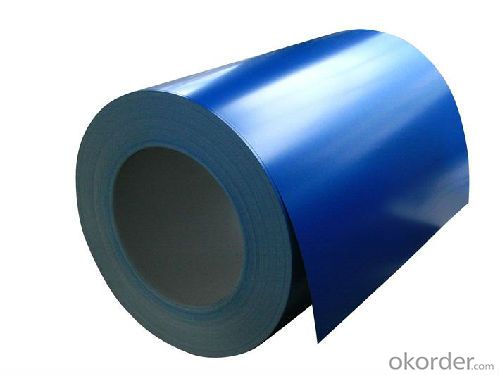
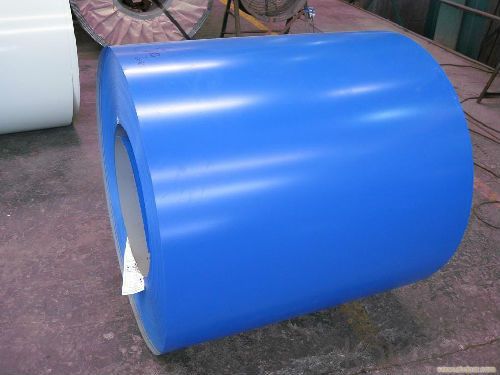
4. Product Specification
| Alloy | Temper | Color | Painting | Coating Thickness |
| AA3003 | H14 | RAL | PE&PVDF | 22-25micron |
5.FAQ
What is the quality standard?
---Usually our standard is GB3880-2006
What is the largest width?
---It is 2300mm
What is the MOQ?
---Usually we can accept 5 tons.
- Q: Are aluminum coils suitable for coil slitting applications?
- Yes, aluminum coils are suitable for coil slitting applications. Aluminum is a versatile and lightweight material that can be easily processed and slit into various widths, making it ideal for industries like automotive, construction, and packaging. Its high strength-to-weight ratio and corrosion resistance make aluminum coils a reliable choice for coil slitting applications.
- Q: This question asks if aluminum coils are susceptible to rusting.
- <p>Aluminum coils do not rust in the traditional sense. Aluminum reacts with oxygen in the air to form a thin, protective layer of aluminum oxide on its surface, which prevents further corrosion. This oxide layer is different from rust, which is iron oxide. While aluminum can tarnish or corrode under certain conditions, such as exposure to certain chemicals or harsh environments, it does not rust like iron or steel. Proper storage and handling can help maintain the integrity of aluminum coils and prevent any form of corrosion.</p>
- Q: Can aluminum coils be used in electrical conductors?
- Yes, aluminum coils can be used in electrical conductors. Aluminum is a good conductor of electricity and is commonly used in various electrical applications, including wiring, power transmission, and motor windings.
- Q: Explain the relationship between aluminum coil and aluminum alloy in a few sentences.
- <p>Aluminum coil and aluminum alloy are related in that aluminum coil can be made from aluminum alloy. An aluminum alloy is a material composed of aluminum and other metallic or non-metallic elements, which are mixed to enhance its properties. Aluminum coils are long, rolled sheets of aluminum that can be made from various types of aluminum, including alloys. The use of an alloy allows for the creation of aluminum coils with specific characteristics, such as increased strength, corrosion resistance, or formability, depending on the application requirements. Thus, aluminum coils are often manufactured from aluminum alloys to meet the demands of diverse industries.</p>
- Q: How are aluminum coils tested for quality assurance?
- Aluminum coils are tested for quality assurance through various methods and parameters to ensure their compliance with industry standards and customer requirements. One of the most common tests performed on aluminum coils is the dimensional inspection, where the dimensions and tolerances of the coils are measured and compared with the specifications. This ensures that the coils are manufactured within the required size and shape. Another important aspect of quality assurance testing is the evaluation of the mechanical properties of the aluminum coils. This includes tests such as tensile strength, yield strength, elongation, and hardness. These tests determine the strength and durability of the coils, ensuring that they can withstand the intended applications and environments. To assess the surface quality of the aluminum coils, visual inspection and non-destructive testing methods are employed. Visual inspection involves examining the coils for any visual defects, such as scratches, dents, or surface irregularities. Non-destructive testing techniques, such as ultrasonic testing or eddy current testing, are used to detect any hidden defects or flaws within the coils. Furthermore, chemical analysis is conducted to determine the composition and purity of the aluminum coils. This is vital to ensure that the coils meet the required chemical composition standards, as impurities can affect their performance and integrity. Additionally, corrosion resistance testing is performed to evaluate the ability of the aluminum coils to withstand corrosion in different environments. This is crucial, especially for applications where the coils will be exposed to harsh conditions or corrosive substances. Overall, the quality assurance testing of aluminum coils involves a combination of physical, mechanical, visual, and chemical evaluations. These tests are conducted at different stages of the manufacturing process to ensure that the coils meet the highest quality standards and provide reliable performance in their intended applications.
- Q: Besides replacing all the aluminum wiring.
- Aluminum wire, in and of itself, is not the hazard. You can buy receptacles that are rated for AL/CU Aluminum and copper. If the wire is intact, replace the receptacle with an AL/CU rated receptacle, and be extra careful how much torque you put on the screws that hold the wire down. AN AL/CU rated receptacle costs around $3.50 compares to the cheap $0.59 copper only rated junkers at Home Depot? You do NOT have to replace all the aluminum wiring. In other cases, you can couple AL to CU wire with approved Wire Nuts that are rated for AL/CU. BE EXTRA CAREFUL ABOUT BEND RADIUS AND TORQUE SPECS!
- Q: I want to roll aluminum rolls and operate the machine for more than three years
- According to the "Regulations" the relevant provisions of the labor insurance ability of the level of disability identification to enjoy treatment of inductrial injury: (1) medical expenses by the unit in full advance;
- Q: I was going to buy a turkey roaster pan today and an elderly couple stopped me and told me to buy another one that was made of stainless steel instead of aluminum because aluminum does something to your brain. What is the story?Just curious. Does this also ring true for using a sheet of aluminum foil over baking sheets while cooking cookies or fries or something? I always coat my cookie sheets with foil. Just curious...
- For okorder /19
- Q: Can aluminum coils be custom-made to specific requirements?
- Indeed, specific requirements can be met through the customization of aluminum coils. These coils possess great versatility and can be adjusted to fulfill a diverse array of specifications and applications. Manufacturers possess the capability to tailor the coil's dimensions, thickness, width, and length to accommodate particular needs. Moreover, the application of various surface finishes, including embossed patterns or coatings, can enhance both aesthetic appeal and functionality. The customization of aluminum coils enables the precise fulfillment of specific needs within industries such as construction, transportation, aerospace, and more.
- Q: Can aluminum coils be used in the production of automotive parts?
- Indeed, automotive parts can be produced using aluminum coils. As a lightweight and highly malleable metal, aluminum is an excellent choice for manufacturing various components in the automotive industry. Body panels, hoods, fenders, doors, and even engine parts can all be fabricated using aluminum coils. The utilization of aluminum in this sector presents several benefits, such as enhanced fuel efficiency, superior performance, and reduced vehicle weight. Furthermore, aluminum coils are easily manipulable and can be shaped into intricate forms, allowing for greater design adaptability in the manufacturing of automotive parts. In conclusion, the use of aluminum coils has become increasingly popular in recent years and is now a common practice in the production of automotive components.
Send your message to us
Air Conditioner Aluminum Coil - Color Coated Aluminium Coil PE Painting AA3003 H14
- Loading Port:
- China Main Port
- Payment Terms:
- TT or LC
- Min Order Qty:
- -
- Supply Capability:
- -
OKorder Service Pledge
OKorder Financial Service
Similar products
Hot products
Hot Searches
Related keywords
